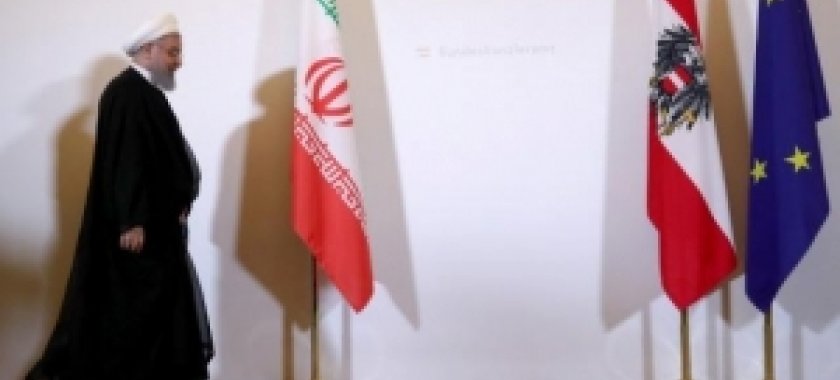World powers and Iran appeared to make no concrete breakthrough on Friday in talks to provide Tehran with an economic package to compensate for U.S. sanctions that begin taking effect in August.
Ministers from Britain, China, France, Germany and Russia met their Iranian counterpart in Vienna for the first time since U.S. President Donald Trump left a nuclear accord in May, but diplomats had seen limited scope for salvaging it.
Trump pulled the United States out of the multinational deal under which sanctions on Iran were lifted in return for curbs on its nuclear program verified by the International Atomic Energy Agency (IAEA). Washington has since told countries they must stop buying the OPEC producer’s oil from Nov. 4 or face financial consequences.
Speaking after three hours of talks, EU foreign policy chief Federica Mogherini, who chaired the talks, read a statement from the six delegations repeating previously-announced broad priorities ranging from guaranteeing Iranian oil revenue to shipping ties, banking and all other trade and investment co-operation.
"Participants agreed to keep progress under close review and to reconvene the joint commission, including at ministerial level, as appropriate in order to advance common efforts,” Mogherini said, adding that all sides were determined to find and implement solutions.
Unlike at past meetings, Mogherini took no questions.
"All the commitments made today , should be implemented before the August deadline ... it is up to the leadership in Tehran to decide whether Iran should remain in the deal ... the proposal was not precise and a complete one,” Mohammed Javad Zarif told reporters.
Speaking earlier in the day, France’s foreign minister said that world powers would struggle to keep to that deadline.
"They (Iran) must stop threatening to break their commitments to the nuclear deal,” Jean-Yves Le Drian said.
"We are trying to do it (economic package) before sanctions are imposed at the start of August and then the next set of sanctions in November. For August it seems a bit short, but we are trying to do it by November,” he said.
On arrival in Vienna, Germany’s Foreign Minister Heiko Mass said he didn’t expect a collapse of talks, but suggested more negotiations would be needed in the future. He stressed hat world powers would struggle to compensate Tehran for companies leaving Iran.
The pillars of the European Union’s strategy are: European Investment Bank lending, a special measure to shield EU companies from U.S. secondary sanctions, and a Commission proposal that EU governments make direct money transfers to Iran’s central bank to avoid U.S. penalties.
Icmal.Az



























